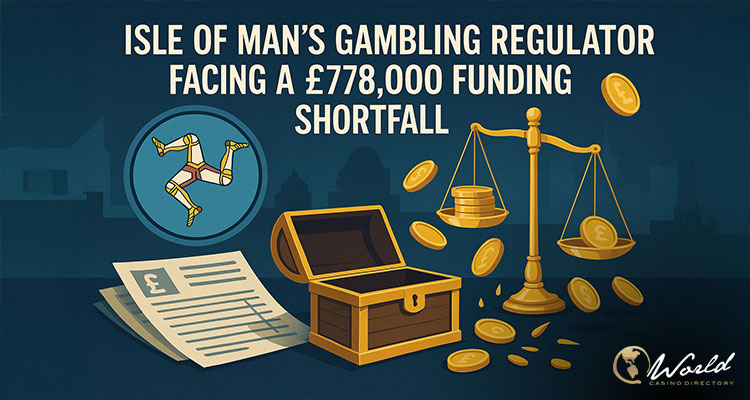The Isle of Man’s Gambling Supervision Commission (GSC) has projected a substantial funding gap of £778,000 for the 2025-26 fiscal year, pointing to a steep decline in both new and existing gaming licenses as the primary cause. The shortfall became public through departmental revenue bid documents released during the island’s 2025 budget planning process.
The GSC, which funds its operations largely through annual license fees and new application revenues, is bracing for income well below Treasury expectations. According to the regulator’s revenue bid, only 109 licenses are anticipated to carry over into the new financial year—far fewer than the 148 originally forecasted.
Declining Licence Activity and Elevated Attrition Rates
At present, the Commission oversees 84 online gambling license holders. This figure is supplemented by three bookmaker licenses, five controlled machine suppliers, and a single casino license. Despite efforts to stimulate sector growth, the GSC has consistently fallen short of its new application targets in recent years.
In 2022-23, the Commission aimed for 39 new licenses but approved just 22, ending the period with 89 active licenses—13 fewer than projected. The downward trend persisted into 2023-24, when again only 26 of the 39 expected applications were processed, resulting in 99 licenses instead of the forecasted 127.
As a result, the regulator has revised its expectations for the coming year, reducing its target for new license approvals from 39 to 27. Compounding the issue is a rising attrition rate among existing license holders. While the budget estimated a 15% annual loss, the actual figure rose from 8% in 2022-23 to 17% in 2023-24.
Over the past year, the Commission revoked or suspended 25 e-gaming licenses, while only 18 new ones were approved.
Regulatory Pressures and the King Gaming Fallout
The GSC has also faced headwinds stemming from heightened scrutiny and enforcement actions. It revealed that during 2023-24 and the first half of 2024-25, a notable number of license applications were processed but ultimately rejected due to non-compliance with regulatory standards—seven such cases were documented.
Further complicating the outlook is the high-profile case involving King Gaming. “The recent well publicized revocation by the GSC of licenses for King Gaming has further complicated the outlook for new business, with seizures and prosecutions a possibility,” stated the regulator in its budget submission, according to Isle of Man Today.
This case, which stemmed from police raids in April last year amid international fraud and money laundering allegations, has reportedly damaged the island’s appeal as a gaming jurisdiction. The GSC noted that while the creation of a dedicated enforcement team could bring in revenue through fines and penalties, it may simultaneously deter potential new applicants and prompt current license holders to reconsider their status.
The upcoming MoneyVal review—an assessment by the Council of Europe on the Isle of Man’s compliance with anti-money laundering and counter-terrorist financing standards—is also expected to further strain the flow of new business.
Leadership Changes and Strengthened Compliance Focus
Despite these challenges, the GSC is reinforcing its internal capabilities. A notable development is the appointment of Nicola Libreri as deputy CEO. Libreri, who joined the Commission in 2018, previously led its Anti-Money Laundering and Countering the Financing of Terrorism (AML/CFT) division. In that role, she oversaw policy development, enforcement activities, inspections, and stakeholder outreach.
Libreri’s leadership has seen the implementation of rigorous compliance initiatives, including targeted training and the formation of specialized teams focused on remediation and regulatory alignment. These teams are responsible for conducting outreach, monitoring adherence, and applying sanctions when warranted to maintain integrity in the gaming sector.
She holds International Compliance Association diplomas in both Anti-Money Laundering/Countering the Financing of Terrorism and Governance, Risk, and Compliance. Her additional training in blockchain analysis is particularly relevant as the regulator addresses the evolving landscape of crypto-enabled gaming services.


